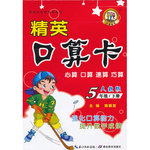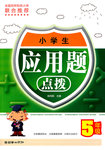题目内容
Everyone knows that exercise is important. We all need to exercise. Doctors say it is good for us. It makes your heart and body strong. Children who often exercise are more alert(灵活的). This means they do better in tests and schoolwork than those who don’t exercise.
There are many ways to exercise. You can walk, run, swim, skate, or play ball games. Make sure you exercise in the following ways:
1. You have to like what you’re doing.
2. Exercise enough, but not too much. It’s best to exercise twice each week. Thirty minutes each time is enough.
3. Try all kinds of things until you find one, two or even three sports right for you.
Lots of people choose to exercise at fitness centers. Why? Because there is a lot of sports equipment(器材) there. The equipment will help exercise your arms, legs and other parts of your body to make you healthy.
Exercising can be fun. Friends can exercise together at a fitness center or they can play sports together outside. How do you exercise?
根据短文内容,判断句子的正(T)、误 (F)。(5分)
1.The writer tells us that we all need to exercise to make our body strong.
2.According to the passage, it’s best to exercise three each week and an hour each time.
3.Exercising too much is good for us and it makes us laugh and happy.
4.All of people think that they should choose to play sports at fitness centers.
5.The equipment can help people do more exercise to keep healthy.
1.T
2.F
3.F
4.F
5.T
【解析】
试题分析:这篇短文介绍了体育锻炼对我们的好处,以及如何进行体育锻炼。
1.根据We all need to exercise. Doctors say it is good for us. 可知本句表述正确。
2.根据It’s best to exercise twice each week. Thirty minutes each time is enough.描述可知本句表述错误。
3.根据Exercise enough, but not too much.及下文描述可知本句表述错误。
4.根据Lots of people choose to exercise at fitness centers.可知许多不是全部,故本句表述错误。
5.根据The equipment will help exercise your arms, legs and other parts of your body to make you healthy.描述可知本句表述正确。
考点:关于体育锻炼的说明文
点评:本文浅显易懂,各个小题都能在文中找到适当依据。只要认真阅读短文,注意前后联系,就能顺利完成阅读。文章所设试题主要考察细节查找,做题关键是找出原文的根据,认真核查小题和原文的异同。

 精英口算卡系列答案
精英口算卡系列答案 应用题点拨系列答案
应用题点拨系列答案
|
Happiness is for everyone. In fact, happiness is always around you if you care about it. When you are in 1 at school, your classmates will help you; when you study hard at your 2 , your parents are always taking good 3 of you; when you get succeed(成功), your friends will say congratulations 4 you; when you do something 5 , people around you will help you correct it; and when you do something good to 6 , you will feel happy, too. All these things are 7 . If you pay attention to them, you can see happiness is always 8 you. Happiness is not the same as money. When you are poor, you can say you are very happy, because people can’t buy happiness 9 money. When you meet problems, you can also say loudly you are very happy, because you have many friends to help you. So you can’t always say you are poor and you have bad luck. If you agree with me, you can be a happy and 10 person.
|
broadcast1/'brɔ:dkɑ:st||ˈbrɔdˌkæst/n[C] a programme on the radio or on television: a radio news broadcast | live broadcast ( = a programme that you see or hear at the same time as the events are happening) broadcast2 v past tense and past participle, broadcast 1 [ I,T] to send out radio or television programmes: The interview was broadcast live across Europe. 2 [T] to tell something to a lot of people: There was no need to broadcast the fact that he lost his job. broadcaster /ˈbrɔːdkɑːstə || ˈbrɔːdkæstər/ n [C] |
curious/ ˈkjʊəriəs || 'kjur-/ adj 1 wanting to know about something: When I mentioned her name everyone was curious. | [ +about] I’m incurious about this book she's supposed to be writing. |curious to see/hear/know etc: Mandy was curious to hear what Peter had to say himself.—opposite INCURIOUS 2 strange or unusual: a curious noise coming from the cellar | curious that It's very curious that she left without saying goodbye. curl1 /kɜ:l|| kɚrl/ n 1[C] a small mass of hair |
|
flask / flɑ:sk || flæsk/n [C] I BrE a special type of bottle that you use to keep liquids either hot or cold, for example when travelling 2 a flat bottle usually used to carry alcohol 3 a glass bottle with a narrow top, used in a LABORATORY flat1/ flæt / adj flatter, flattest 1▶ SURFACE◀ smooth and level, without raised or hollow areas, and not sloping or curving: a flat-bottomed boat |a perfectly flat sandy beach | flat as a |
pollute / pə'lu:t/ v [T] 1 to make air, water, soil etc dangerously dirty and not suitable for people to use: beaches polluted by raw sewage | industrial emissions that pollute the air 2 pollute sb’s mind to give someone immoral thoughts and spoil their character: fears that Lawrence's novels would pollute young minds--polluted adj: polluted rivers--polluter n [C] pollution / pəˈlu:ʃn /n [U] 1 the process of making |
1.The pronunciation of the word "broadcast" is ____ or/ˈbrɔdˌkæst /.
A. /'brɔ:dkɑ:st/ B. /'brəud'sɑ:st/ C. /bræd'kɔst/ D. /'bru:dkɑ:st/
2.The word"____ "can be used as an adjective (形容词).
A. pollute B. pollution C. curious D. curiously
3.Which of the following is a flask?




A. B. C. D.
4. The word "pollute" means "______".
A. to tell something to a lot of people B. wanting to know about something
C. a programme on the radio or on TV D. to make air. water, soil, etc dirty
5.These texts are probably from ______.
A. a magazine B. a dictionary
C. a newspaper D. an advertisement